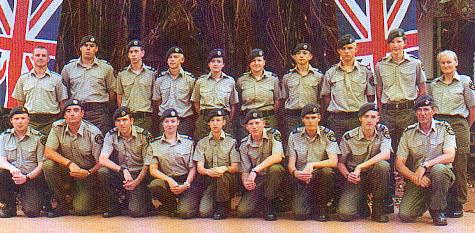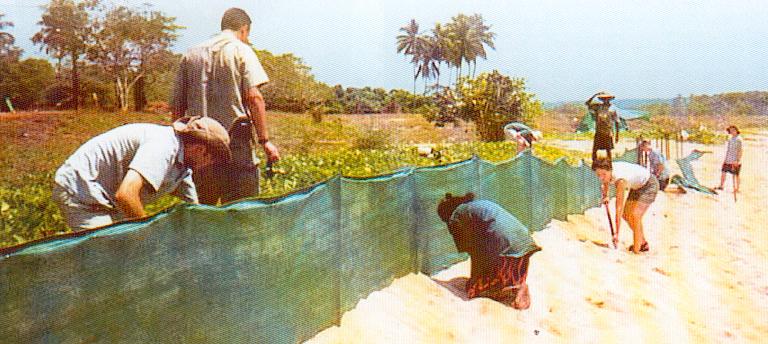Outdoor Activities Expedition ‘Arnhem' to Australia
August I September 2001
863 (Thurston), 301 (Bury St Edmunds) and 1333 (Stowmarket) Squadrons Norfolk & Suffolk Wing, Air Training Corps.
 The team, comprising 4 adult staff and 15 cadets
of whom 4 were female, travelled by commercial airline from the UK to the Gove
Peninsula in Arnhem land via Kuala Lumpur and Darwin - a trip of over 40 hours
duration split by a 24 hour stop over at RAAF Darwin training camp.
The team, comprising 4 adult staff and 15 cadets
of whom 4 were female, travelled by commercial airline from the UK to the Gove
Peninsula in Arnhem land via Kuala Lumpur and Darwin - a trip of over 40 hours
duration split by a 24 hour stop over at RAAF Darwin training camp.
The first few days of the
expedition were spent acclimatising to the tropical conditions and meeting the
land management team. Our Yolgnu hosts took us into the bush and explained and
demonstrated how they use the plants and animals for everything they need to
survive, including the use of fire to control both the bush and the movement of
animals.
After a few days, we were
tasked with erecting some screening in order to prevent wind erosion on some of
the beaches as well as planting about 60 trees at various locations, including
Bremmer Island, where a tiny Yolgnu community have made their home.
A small group of us arose
early one morning to search out some wild life with very limited results. We spent some 30 minutes
watching what we believed to be a basking crocodile, only to find that as the
sun came up it turned out to be what the locals call a logodile. However the
sunrise was spectacular.
The climax of the
expedition was a 2 day trip to a place called Bawaka, the homeland of one of
the Yolgnu clans. Cadets and Yolgnu spent 2 days hunting and learning from one
another. During the evening we joined in with their dancing until at the end of
the night the Yolgnu put on a special dance of their family.
After the dance they
presented 2 of the paddles (Marrwala) used during the dance to the team, which
moved us deeply.
By the time we were to return to the UK, 10
members of
the team had been adopted as brother or sister to individual members of the Yolgnu family. The team achieved all of it's
objectives and. a lot more. The cadets learned more about this culture than many
Australians, and were allowed to go to areas not normally allowed in this unique
and beautiful land. We returned to the UK by commercial airline with perhaps a
little more understanding than we had when we arrived.
Returning to our Western
culture on the day of the 11 September only reinforced the need for all of us to
talk and attempt to understand other cultures and people.
AWO Richard Lane Air
Training Corps
